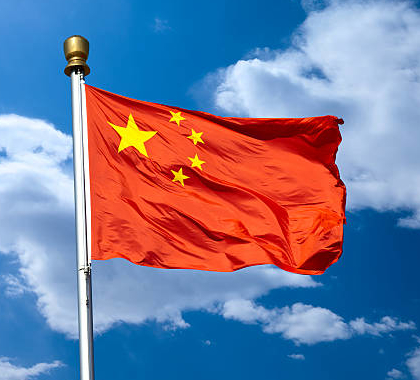High-ranking members of the U.S. House Natural Resources Committee are raising questions about the relationship between an influential American environmental group and a key geopolitical and economic rival of the United States.
The House Natural Resources Committee has opened an investigation into ties between the New York City-based Natural Resources Defense Council (NRDC) and the government of China.
Committee Chairman Rob Bishop (R–UT) and Subcommittee on Oversight and Investigations Chairman Bruce Westerman (R–AR) sent a letter to NRDC President Rhea Suh on June 5, seeking information on the organization’s relationship with China and clarification of its status as a foreign agent under the Foreign Agents Registration Act (FARA).
“The Committee is concerned about the NRDC’s role in aiding China’s perception management efforts with respect to pollution control and its international standing on environmental issues in ways that may be detrimental to the United States,” Bishop and Westerman wrote.
Indications of Bias
The Bishop and Westerman letter lists several factors the congressmen say raise concerns NRDC may be violating FARA.
“The NRDC’s relationship with China has many of the criteria identified by U.S. intelligence agencies and law enforcement as putting an entity as risk of being influenced or coerced by foreign interests,” Bishop and Westerman wrote. “The NRDC’s involvement in China spans two decades and represents a significant investment of time and resources, [and] [t]he NRDC’s ability to work in China is dependent on the goodwill of the Chinese Government.
“When engaging on environmental issues concerning China, the NRDC appears to practice self-censorship, issue selection bias, and generally refrains from criticizing Chinese officials,” wrote Bishop and Westerman.
As evidence of this self-censorship, Bishop and Westerman note just a few months after release of a 2016 Greenpeace study concluding China’s government-subsidized fishing fleet threatened the viability of fisheries around the world, NRDC praised China’s “bold new reforms” in its domestic fisheries even though, as Bishop and Westerman state, “China has been the world’s largest producer of wild fish for over two decades.”
“Similarly, the NRDC has never condemned, or even mentioned, China’s illegal and environmentally destructive island reclamation campaign that has covered over 3,200 acres of coral reefs with runways, ports, and other military facilities,” Bishop and Westerman write. In addition, “the NRDC collaborates with Chinese government entities that are deeply involved in Chinese efforts to assert sovereignty over the South China Sea in contravention to international law,” the congressmen write.
‘Disconcerting’ Double Standard Seen
The two chairmen also expressed concern NRDC holds the U.S. Navy to a higher standard on environmental issues than China’s Navy.
“Over the past two decades, your organization has also sued the U.S. Navy multiple times to drastically limit or stop naval training exercises in the Pacific arguing that naval sonar and anti-submarine warfare drills harm marine life,” Bishop and Westerman wrote. “We are unaware of the NRDC having made similar efforts to curtail naval exercises by the People’s Liberation Army or Navy.”
Bishop and Westerman say NRDC has become a high-profile public advocate for Chinese environmental policies while offering scathing critiques of U.S. policies.
“Following the U.S. withdrawal from the Paris [Climate] Agreement, the NRDC sought to shape public opinion, in part, by attempting to discredit those skeptical of China’s commitment to pollution reduction targets or to honestly reporting environmental data,” they wrote. “The disconnect between the NRDC’s role as ‘thought leader and trusted advisor to our partners in China’ and its approach to environmental advocacy in the United States is disconcerting.”
‘We’re Against Capitalist Countries’
Ron Arnold, executive vice president of the Center for the Defense of Free Enterprise and a policy advisor to The Heartland Institute, which publishes Environment & Climate News, says NRDC’s silence on China’s environmental record is caused by the organization’s opposition to free market economies.
“NRDC’s mission statement concludes, ‘We seek to break down the pattern of disproportionate environmental burdens borne by people of color and others who face social or economic inequities,'” Arnold said. “In today’s NRDC–China controversy, this seems to translate as, ‘We’re against capitalist countries, and we’re for the other kind.'”
‘Shameful’ Silence
Paul Driessen, a senior policy advisor for the Committee for a Constructive Tomorrow and a policy advisor to The Heartland Institute, says NRDC has turned a blind eye to China’s global environmental degradation.
“The NRDC has said nothing about the massive land and water impacts associated with China’s mining of the rare-earth elements—lithium and cobalt—that are essential for the wind, solar, and battery technologies [the NRDC] claims are necessary if the world is to abandon fossil fuels and embrace a renewable energy future to save our planet from alleged climate cataclysms,” Driessen said.
“In China’s African mines, many of the workers are women and children who labor sunup to sundown in toxic, contaminated mud and water, under constant risk of cave-ins,” said Driessen. “Where the mines and processing facilities aren’t directly owned by the Chinese government, their output is mostly purchased by Chinese companies, which profit immensely from the near-slave labor.
“NRDC’s complicity in allowing this to continue is shameful,” Driessen said.
Bonner R. Cohen, Ph.D. ([email protected]) is a senior fellow at the National Center for Public Policy Research.
INTERNET INFO
Rep. Rob Bishop (R–UT) and Rep. Bruce Westerman (R–AR), “NRDC China Letter,” U.S. House Natural Resources Committee, June 5, 2018: https://heartland.org/publications-resources/publications/bishopwesterman-nrdc-china-letter
Official Connections
Rep. Rob Bishop (R–UT): https://robbishop.house.gov/; https://robbishop.house.gov/contact/email
Rep. Bruce Westerman (R–AR): https://westerman.house.gov/; https://westerman.house.gov/contact/email





